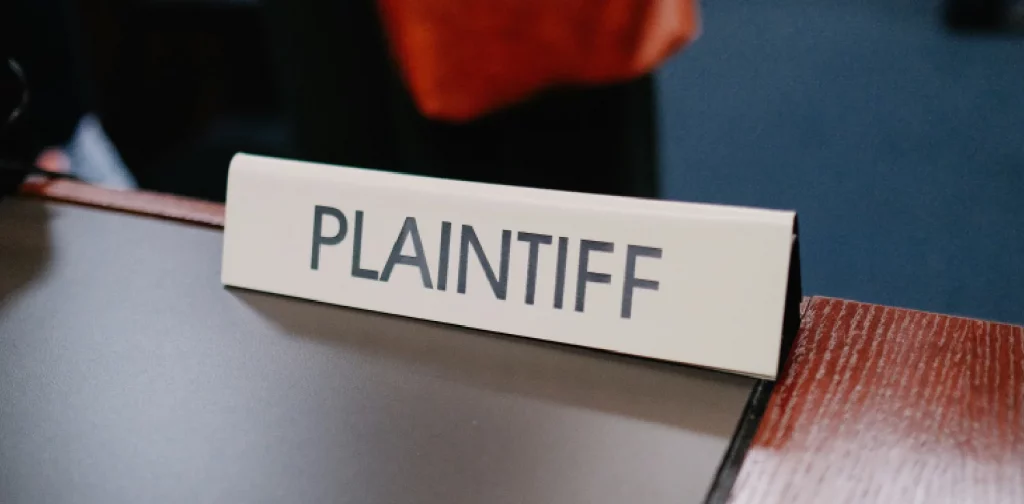How Climate Litigation Can Push Climate Action Accountability

Photo: Wesley Tingey on Unsplash.
As the world grapples with the impacts of climate change, many have been trying to seek relief and justice through legal actions. Climate litigation cases have increased globally in recent years, underscoring an emerging path to push climate mitigation and adaptation commitments worldwide.
Who Is Responsible?
Climate change has always been a class issue. Our responsibilities as individuals significantly differ from those of governments, businesses, and organizations, both in aggravating and tackling the crisis. In other words, those in power can and should take bigger actions to halt and turn the tide of what is probably the most urgent crisis of our time.
However, current international ambition and efforts remain insufficient as the crisis worsens. In response, numerous individuals, communities, and other actors have filed climate litigation cases in recent years to demand actions related to climate change. For example, a group of older women in Switzerland won a landmark climate case against the government in April 2024. The court ruled the Swiss government guilty of its lack of action in protecting its citizens from the risks of climate impacts, including heatwaves. Another example came from March 2022 when seven civil society groups in Thailand filed a lawsuit against the government for neglecting to protect citizens’ rights to clean air.
Similar cases are happening worldwide. The Global Climate Litigation Report: 2023 Status Review report by the United Nations Environment Programme examines the state, key issues, and emerging trends of global climate litigation. It provides an update to the previous two versions, the 2017 and 2020 ones.
Climate Litigation Trends
Globally, climate litigation cases have an upward trend. The report uses the Sabin Center for Climate Change Law’s definition of climate litigation, which includes “cases that raise material issues of law or fact relating to climate change mitigation, adaptation, or the science of climate change.”
As of December 2022, the Sabin Center’s database recorded 2,180 climate change cases filed in 65 jurisdictions and international or regional courts, tribunals, quasi-judicial bodies, or other adjudicatory bodies. In 2020, 1,550 cases were filed in 39 jurisdictions.
Most cases occurred in the Global North, representing 89% of the total climate litigation cases. Meanwhile, the Global South only comprised 5.2% of the cases, while regional cases accounted for 5.8%. The report noted that regions like Asia and Africa remain underrepresented due to gaps in research and the database.
Individuals, civil society, and others who initiate the lawsuit can demand the integration and enforcement of climate laws, more effective climate commitment and actions from those in power, and compensation for climate harm. The report identified six categories of climate litigation cases: the use of “climate rights” in climate litigation, domestic enforcement, keeping fossil fuels and carbon sinks in the ground, corporate liability and responsibility, climate disclosures and greenwashing, and failure to adapt and the impacts of adaptation.
Pushing for Clear Commitments & Actions
The impacts of climate change may be irreversible in the following years. Moreover, the compounding effects of poverty, conflicts, disasters, and other crises can significantly amplify the burden of mitigation and adaptation efforts. So, we must act now.
Climate litigation empowers individuals, civil society, and others to address the inefficient and inadequate efforts made by governments, businesses, and other related parties to tackle the climate crisis. With the right support, climate litigation also has the potential to champion the rights of marginalized groups, including children, women, and Indigenous Peoples, by enabling them to take action and assert their rights.
Editor: Nazalea Kusuma

Co-create positive impact for people and the planet.
Amidst today’s increasingly complex global challenges, equipping yourself, team, and communities with interdisciplinary and cross-sectoral insights on sustainability-related issues and sustainable development is no longer optional — it is a strategic necessity to stay ahead and stay relevant.

Kresentia Madina
Madina is the Assistant Manager of Stakeholder Engagement at Green Network Asia. She holds a bachelor’s degree in English Studies from Universitas Indonesia. As part of the GNA In-House Team, she supports the organization's multi-stakeholder engagement across international organizations, governments, businesses, civil society, and grassroots communities through digital publications, events, capacity building, and research.


 Impacts of E-waste Pollution on Animals and Human Health
Impacts of E-waste Pollution on Animals and Human Health  Africa’s Solar Energy Surge: Why 2025 Was a Breakthrough Year
Africa’s Solar Energy Surge: Why 2025 Was a Breakthrough Year  Agrihoods: Integrating Farms and Urban Neighborhoods into Sustainable Communities
Agrihoods: Integrating Farms and Urban Neighborhoods into Sustainable Communities  Women in Waste Management: Asia’s Circularity Runs on Women. Its Policies Still Don’t
Women in Waste Management: Asia’s Circularity Runs on Women. Its Policies Still Don’t  Embracing the Business Value of Sustainability
Embracing the Business Value of Sustainability  American Farmers Call for Government Support Amidst PFAS Contamination
American Farmers Call for Government Support Amidst PFAS Contamination